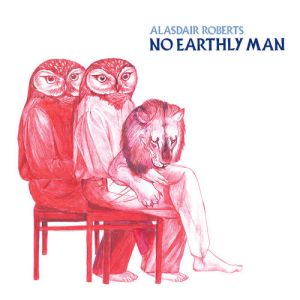 In 2011 a book was published which claimed that the story of Greyfriars’ Bobby, the faithful dog that had sat by his master’s grave until he too passed away, was a fallacy created to attract tourists to the church and graveyard. There was a dog that lived in the cemetery but there was never any master. Indeed it was claimed that there was more than one dog, the original Bobby being replaced by a newer more aesthetically pleasing model on his death. This struck me as rather strange at the time as it had never crossed my mind that any grown adult (save perhaps the odd gullible tourist) would accept such a story as fact. Presumably the author of the book also enjoys presenting scientific evidence to small children around Christmas that categorically proves Santa Claus has never existed. Lately, however, Jan Bondeson’s claims have stirred feelings of anger within me. The story of the little dog in Greyfriars Kirkyard is exactly that… a story; and a great one at that. Claiming that it was made up serves no other purpose than to belittle the myth at the risk of seeing it disappear completely in future if no-one is willing to peddle it.
In 2011 a book was published which claimed that the story of Greyfriars’ Bobby, the faithful dog that had sat by his master’s grave until he too passed away, was a fallacy created to attract tourists to the church and graveyard. There was a dog that lived in the cemetery but there was never any master. Indeed it was claimed that there was more than one dog, the original Bobby being replaced by a newer more aesthetically pleasing model on his death. This struck me as rather strange at the time as it had never crossed my mind that any grown adult (save perhaps the odd gullible tourist) would accept such a story as fact. Presumably the author of the book also enjoys presenting scientific evidence to small children around Christmas that categorically proves Santa Claus has never existed. Lately, however, Jan Bondeson’s claims have stirred feelings of anger within me. The story of the little dog in Greyfriars Kirkyard is exactly that… a story; and a great one at that. Claiming that it was made up serves no other purpose than to belittle the myth at the risk of seeing it disappear completely in future if no-one is willing to peddle it.
It is a rather unpleasant character trait of our more scientifically grounded secular society to disprove and pour scorn on old world ideas. It is surely only a matter of time before Richard Dawkins starts turning up to the funerals of complete strangers to tell family members of the deceased that they’re wasting their time and that poor old Granddad is now naught but worm food. The same is perhaps true of modern folk songs with the likes of Laura Marling and Mumford and Sons furrowing a rich vein in terms of the musical qualities of the genre without exploring the dark and mystical lyrical content of their predecessors. Enter No Earthly Man by Alasdair Roberts, a collection of traditional, mainly Scottish folk songs that tell of murder, ghosts and revenge.
The album opens with Lord Ronald a song that recalls the conversation of a dying, poisoned noble man and his mother with Robert’s fragile, boyish, almost asexual vocals accompanied only, for the most part, by a single continuous note from a keyboard. The tempo is painfully slow, exaggerated by the lack of any percussion, making listening an almost uneasy experience. But as the song reaches its denouement, Roberts’ vocals soar and there is reward for persevering with such a difficult start as the titular character outs his sweetheart as his killer and bequeaths her “the rope, and the high gallows tree.”
The record is produced by Will Oldham, whose influence is clear especially in the string arrangements, and there is a clear motive throughout to bring the vocals and stories woven within each song to the fore, the background instrumentation almost an afterthought. The tempo never really picks up as the record goes on, nor the dour subject matter. Lord Ronald is followed by Molly Bawn an adaptation of an Irish folk song that spins the warning tale of a young man who shoots his lover by accident, mistaking her for a swan. That in turn is followed by The Cruel Mother a version of an ancient ballad about infanticide (and people claim violence in music is a modern phenomenon). Will Oldham and Isobel Campbell provide some minimal whispered vocal accompaniment at times, often to suggest the voice of a character within the song. There are other neat narrative tricks perhaps most obvious in On The Banks of Red Roses where Roberts switches perspective halfway through from the point of view of a murdered maiden to that of her lover and murderer who sees her image in the face of every person he passes as he flees the scene of his crime. Only as the album reaches its conclusion are we treated to a more upbeat sea shanty in Admiral Cole which deceives with jaunty fiddle as Roberts is joined by a chorus of voices that sing of a sunken ship and its drowned crew.
What sets this album apart from other traditional renderings of such folk songs is the ethereal quality Roberts brings through his slow fragile delivery over the top of instrumental arrangements that, at times, sound like they’ve been taken straight from Aphex Twin’s drukqs album (which is no bad thing). What this does is move those songs forward, ripping them from the grasp of bearded men in real ale tshirts, peddling them to another audience, making them fresh, new and interesting. A bit like a replacement dog in a Victorian graveyard.
Cameron R. Black
